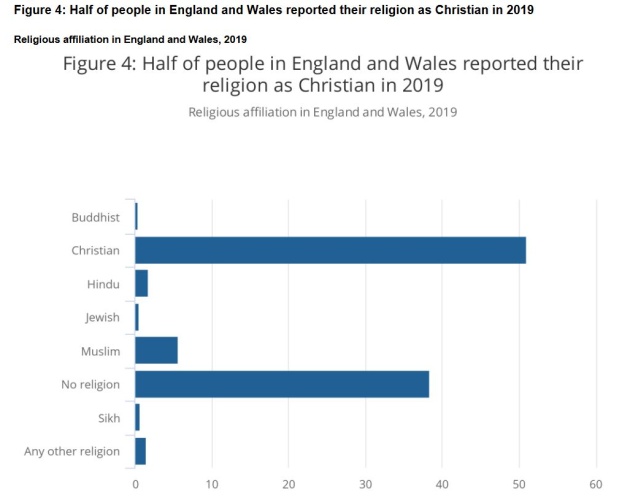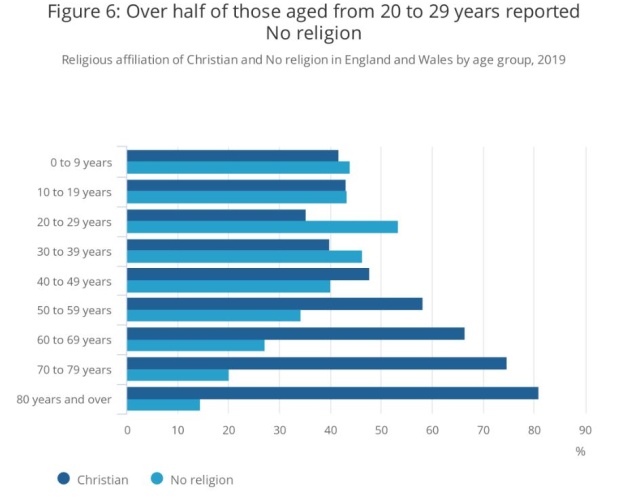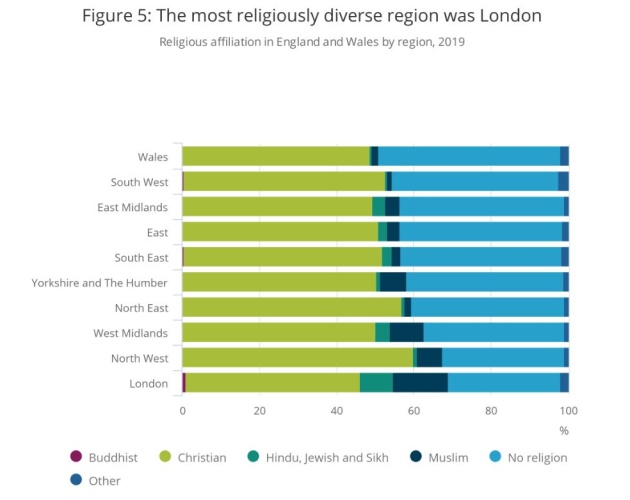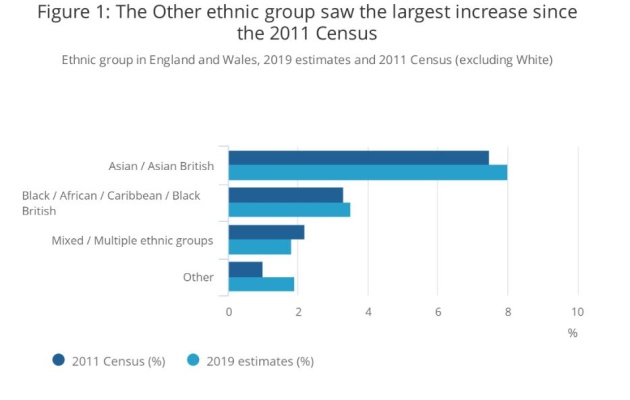Official statistics show that 51% of the general population adheres to Christianity, more women than men. London is the most religiously diverse region in the UK.
![London, in England. / Photo: [link]Lachlan Gowen[/link], Unsplash, CC0](https://cms.evangelicalfocus.com/upload/imagenes/61c054a061d77_lachlan-gowen-RZ5TKFpdaWM-unsplashCropped940.jpg) London, in England. / Photo: [link]Lachlan Gowen[/link], Unsplash, CC0
London, in England. / Photo: [link]Lachlan Gowen[/link], Unsplash, CC0
The number of people who define themselves as Christians in England and Wales has fallen to 51%, a 8% decrease since the 2011 census.
New data published by the Office for National Statistics shows that while 71.4% of women and 61% of men aged between 60 and 69 adhere to Christianity, the number falls to 35% when young people aged between 20 and 29 are asked.

[photo_footer] Source graph: Office for National Statistics [/photo_footer] “No religion” is now the most common answer among children (under 9): 42%, teenagers (10-19): 42%, and young people (20-29): 52%.
In the overall population, the group of those who say they have no religion grew from 31% in the 2011 to 38% in 2019.

[photo_footer] Source graph: Office for National Statistics [/photo_footer]
Muslims are close to 6% of the population in England and Wales and Hindus under 2%.
London is clearly more religiously active than other parts of the country. One in four people living in the capital city say they have a religion other than Christianity. 14% say they are Muslims. Only 29% of people in London say they have no religion.

[photo_footer] Source graph: Office for National Statistics [/photo_footer]
“The North East, South West, and Wales were the least religiously diverse regions, with over 95% of their populations Christian or with No religion”, adds the ONS.
The latest ONS figures also look at ethnicity, showing that 85% of the population in England and Wales identified their ethnicity as “white”, decreasing by 1.2% since the 2011 Census.

[photo_footer] Source graph: Office for National Statistics [/photo_footer]
London is also more diverse in matters of ethnicity. “Those identifying as White British accounted for 43.4% of London's population compared with 78.4% for England and Wales overall”, the ONS said.
“Excluding White British, the most common ethnic groups in London were Other White (14.6%), Black African (7.9%), and Indian (7.0%)”.

Las opiniones vertidas por nuestros colaboradores se realizan a nivel personal, pudiendo coincidir o no con la postura de la dirección de Protestante Digital.
Si quieres comentar o